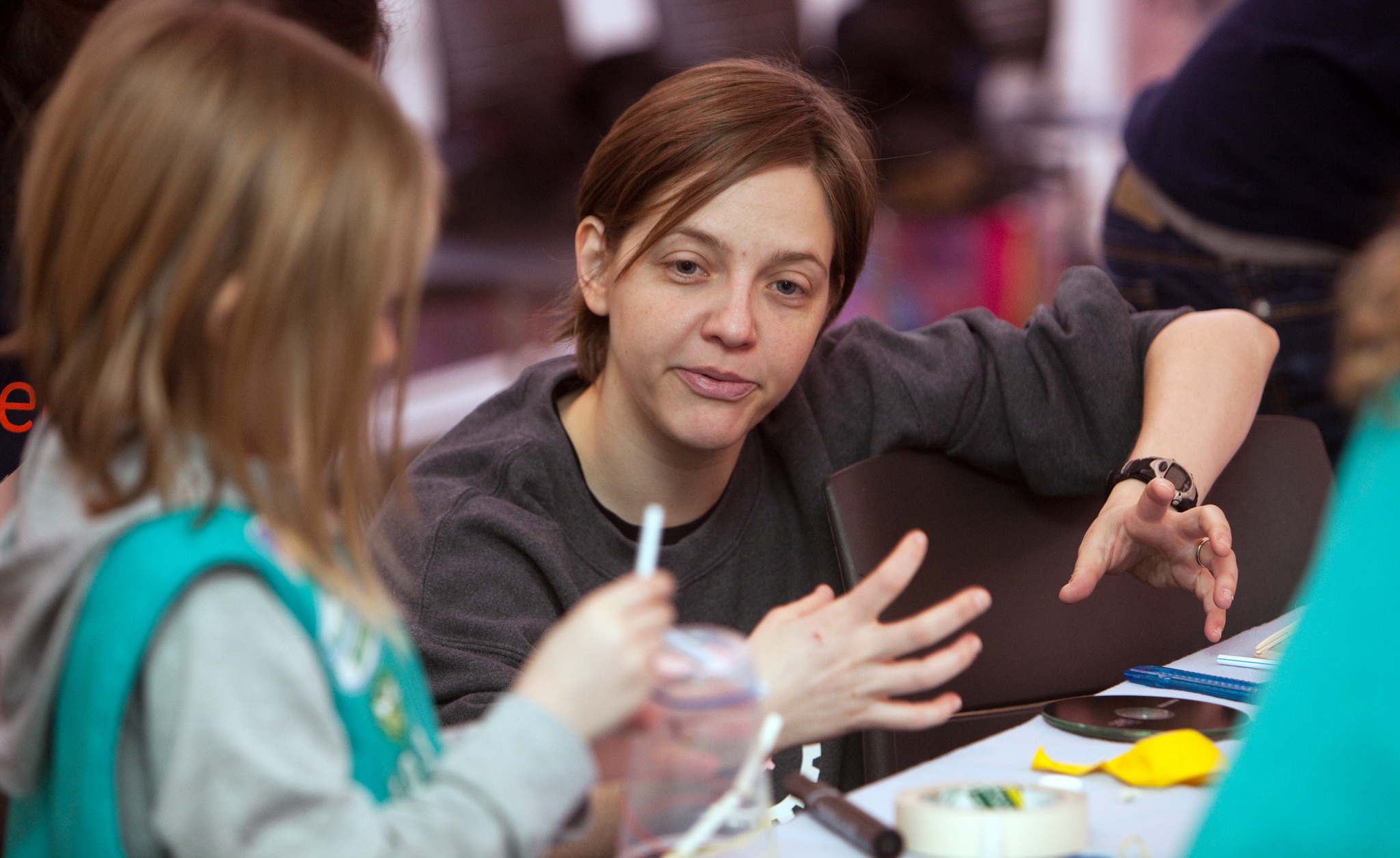Getting girls interested in science, technology, engineering and math -– or STEM careers – has been talked about quite a lot in recent years. The idea is that young women should be encouraged to enter these high-paying jobs that have been traditionally dominated by men. But it turns out that once women do enter these careers, they often quickly drop out. Manager of Research at the Society of Women Engineers Roberta Rincon has some ideas about how to change that based on research done by her organization.
“What past research has shown is that about 30 percent of engineers who graduate from college aren’t even entering the profession. And then you’re seeing sort of this decline over time, and then it stables out for men, and women just continue to drop. So we see this not only in the workplace, we see this in college. We see this even in the K-12 sector,” Rincon says.
Overall, about 50 percent of women leave engineering by the middle of their careers, according to Rincon. Of these, her research found that 30 percent leave because of issues with workplace culture.
Women and minorities are often moved into the marketing side of engineering companies, Rincon says, or assigned what she refers to as “office housework.” This, she says, often factors into women choosing to leave the field.
Then there are personal values to consider. Rincon and her colleagues surveyed over 3000 men and women engineers from 4 different companies.
“What we saw was women tend to value very similar things personally. They value work-life balance for example. But men don’t place that as a desired company value the way women do,” she says.
The Society of Women Engineers is sharing this information with the public and with their corporate partners, according to Rincon. These partners include Intel, Booz Allen Hamilton and United Technologies.
“We explain to them that these are areas of concern. There are things that could be done to help improve this, and one of the action items that we suggest is they actually set diversity goals,” she says.
While the cultural barriers to women excelling in the field are no doubt real, Rincon says women should not be discouraged from entering the profession.
“Unless you see what’s possible, you can be discouraged much more easily,” she says.
Rincon, who got her degree in civil engineering from the University of Texas at Austin, says she was the only female engineer at one of the first places she worked after graduating. She remembers feeling isolated and being excluded from informal networking like happy hours and golfing outings. But she says things are changing, in part thanks to organizations like her own.
“As organizations like the Society of Women Engineers and the National Society of Black Engineers, the Society of Hispanic Professional Engineers grow, I believe there are more engineers to actually do the reaching out,” she says. “We can encourage more girls, more women, to stay in engineering if they don’t feel that they’re alone.”
The Society of Women Engineers will host its annual State of Women in Engineering panel discussion in Austin, Texas, Friday, October 27, 2017 at the Austin Convention Center from 1:00 pm – 2:30 pm CT.
Written by Kate Groetzinger.
















